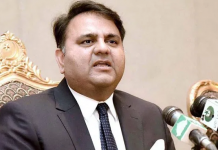ISLAMABAD: The newly constituted National Action Plan (NAP) implementation committee is merely an administrative body, Minister for Interior Affairs Chaudhry Nisar Ali Khan informed the National Assembly on Tuesday.
He also informed that the interior ministry and the National Counter Terrorism Authority (NACTA) are tasked to oversee the plan’s implementation. As formally announced by the Prime Minister’s office, this new committee is headed by National Security Adviser retired Lt Gen Naseer Khan Janjua.
Formation of the new Implementation Committee of the National Action Plan, headed by National Security Adviser retired Lt Gen Naseer Khan Janjua, was formally announced on Monday by the Prime Minister’s Office.
The interior minister also said that Prime Minister Nawaz Sharif had formed a committee which meant that there were 13 committees on NAP implementation.” Even though he did not went into detail about each of those committees and their specific tasks, but at least 15 committees were formed to execute NAP at the time of its commencement.
The government announced the composition of these committees on Dec 27, 2014, which included ministers, senior government officials and top military officials, such as directors general of the Inter-Services Intelligence (ISI) and Military Operations (MO).
But committees tasked to deal with matters, such as the persecution of religious minorities, registration of madressahs (seminaries), sectarianism and media curbs, were kept under civilian control. Of these, the interior minister was designated as the head of at least 11 committees and was widely regarded as the government’s ‘point man’ on NAP implementation.
The minister also informed that the NA agencies had made progress in Quetta blast probe and denied that Barrett (the blacklisted US citizen) was ever charged with espionage. Moreover, an umbrella committee, headed by PM Nawaz himself, had been formed to supervise the overall implementation of the plan. The committee included federal ministers for interior, finance, planning, information, defence and SAFRON, the Khyber Pakhtunkhwa governor and the PM’s adviser on foreign affairs.
Responding to questions from Pakistan Tehreek-e-Insaf’s (PTI) lawmakers Dr Arif Alvi and Shireen Mazari, the interior minister said that NAP implementation was a shared responsibility, “and we can only reach a decision after everyone sits together.”
He added, “Transparent and proper progress on NAP is only possible if the chief ministers attend the monthly high-level security meeting chaired by the prime minister. There, targets should be set, a consensus should be reached over contentious issues and the committee should be given a month to work on the nitty-gritty of implementation.”
He also stresssed the need for coordination with the provinces and recounted that nine of 20 points of NAP exclusively dealt with provincial domains, while eight were related to federal ministries. Two points were specifically assigned to the interior ministry and two others were shared. He added that the responsibility for the Karachi operation was shared with the Sindh government and the task of the SIM verification was shared with the Pakistan Telecommunication Authority (PTA).
He also said that in order to ensure the proper implementation of NAP, “Decisions should be taken at the leadership-level, one month should be devoted to monitoring, and then, at the next month’s meeting, it should be reviewed who is fulfilling their responsibilities and who isn’t.”
He said in response to Dr Alvi, who asked why there was no parliamentary representation in the newly-constituted committee. “This committee has nothing to do with parliament, I am available to brief parliament whenever needed.”
The interior minister also praised the role of the agencies while updating the house on the investigation into the heinous attack at the Civil Hospital in Quetta.






.jpg)




